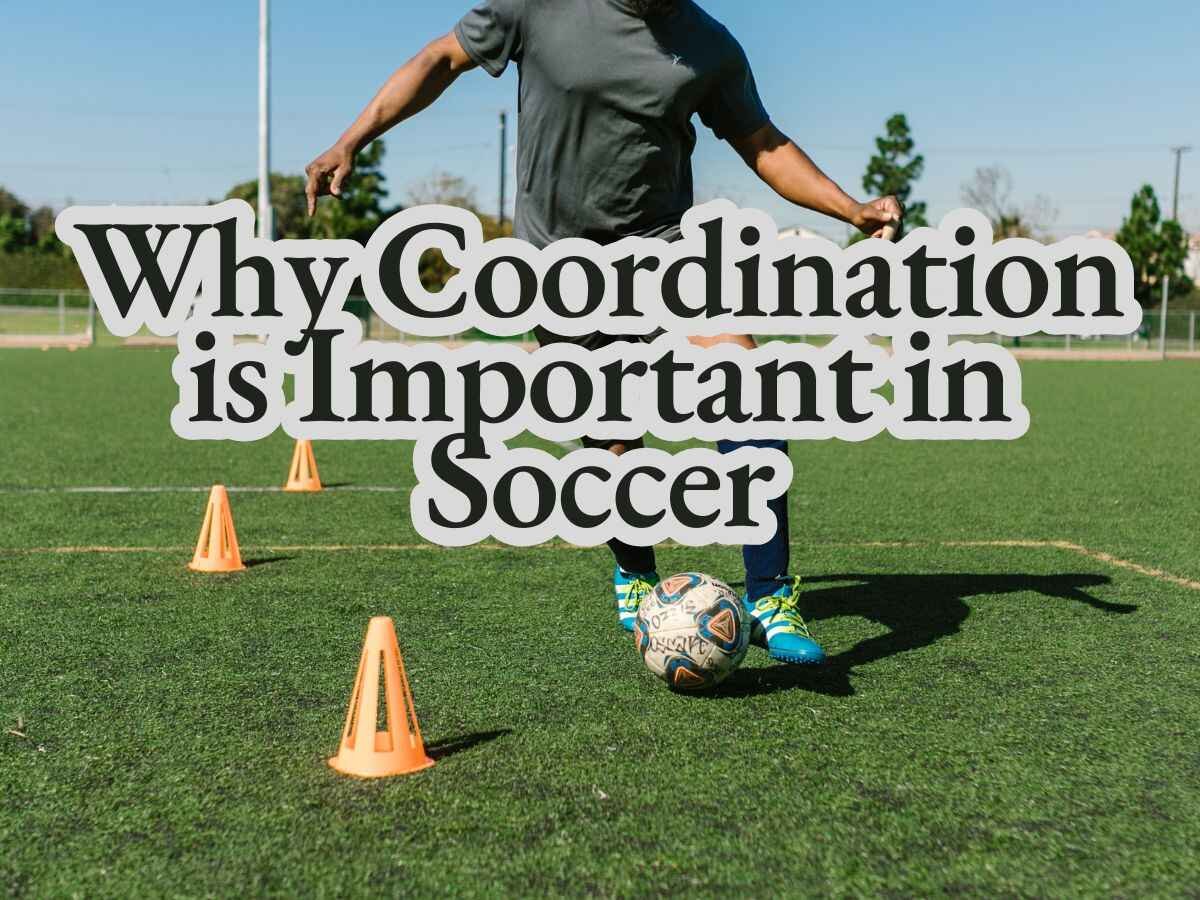Why is coordination important in soccer? Coordination helps players control the ball, move smoothly, and work well with their team. It’s what makes passing, dribbling, and scoring look easy. In this post, we’ll explain why coordination matters so much in soccer and share simple tips and drills to help you improve your game.
Table of Contents
Importance of Coordination in Soccer

- Better Ball Control
Soccer players need to dribble, pass, and shoot the ball accurately. Coordination ensures smooth and precise movements, allowing players to manage the ball effortlessly. - Quick Reflexes
Soccer is a high-speed game where situations change in an instant. Good coordination helps players react swiftly to intercept passes, block shots, or seize scoring opportunities. - Enhanced Teamwork
Soccer is a team sport that relies heavily on coordination between players. Seamless passing, strategic positioning, and effective communication all depend on strong coordination. - Agility and Balance
Players often need to dodge opponents or change direction quickly, and coordination helps them maintain balance and agility during these movements. - Injury Prevention
Proper coordination reduces the risk of injuries. Players with better control over their bodies are less likely to make awkward movements that can lead to strains or falls. - Improved Game Vision
Coordination also enhances a player’s ability to keep track of the ball, teammates, and opponents simultaneously, leading to better decision-making during the game.
How to Improve Coordination in Soccer?
Improving coordination takes consistent practice, but with the right exercises and drills, any player can develop this vital skill. Here are some effective ways to enhance coordination:

1.Footwork Drills
- Ladder Drills: Use an agility ladder to practice quick steps and improve foot speed.
- Cone Dribbling: Place cones in a zigzag pattern and practice dribbling around them to develop precision and control.
2. Ball Mastery
- Juggling: Juggle the ball using both feet to improve foot-eye coordination.
- Dribbling in Tight Spaces: Practice dribbling in confined areas to enhance control.
3. Balance Training
- Single-Leg Exercises: Practice standing on one leg or performing squats to build stability.
- Balance Board: Use a balance board to strengthen your core and improve overall balance.
4. Reaction and Reflex Drills
- Partner Passing: Work with a partner who passes the ball unpredictably, forcing you to react quickly.
- Small-Sided Games: Play quick, small-sided games to sharpen reflexes and decision-making.
5. Coordination Exercises
- Skipping Rope: Jump rope to improve rhythm and overall coordination.
- Multi-Task Drills: Combine movements like passing while jogging to challenge your coordination.
6. Team Practice
- Set Piece Drills: Work on corners, free kicks, and throw-ins to improve synchronization with teammates.
- Game Simulations: Engage in full-game practice to build real-time coordination skills.

Benefits of Coordination in Soccer:
Developing coordination has long-term benefits for soccer players:
- Confidence: Players with strong coordination feel more assured on the field.
- Performance: Improved coordination leads to better overall gameplay, including shooting, passing, and defending.
- Consistency: A coordinated player can deliver consistent results and adapt to challenging situations.
- Fun: Enhanced skills make the game more enjoyable for both players and spectators.

See Also,
how to be better in football as a kid
Best Football Players in the World
FAQs:
What is the role of coordination in soccer?
Coordination helps players control the ball, move efficiently, and respond quickly during a game. It’s essential for executing precise actions like passing, shooting, and dribbling.
How can beginners improve coordination?
Beginners can start with simple exercises like ladder drills, cone dribbling, and juggling. Over time, they can progress to more advanced drills involving balance boards and reaction training.
Can coordination reduce injuries in soccer?
Yes, coordination helps players make controlled movements, reducing the risk of falls, awkward landings, and muscle strains.
How does teamwork benefit from coordination?
Coordination allows players to move in sync with teammates, enabling smooth passes, strategic positioning, and successful plays.
What equipment can help improve coordination?
Agility ladders, cones, balance boards, and skipping ropes are some tools that can enhance coordination in soccer players.
Is coordination equally important for goalkeepers?
Absolutely! Goalkeepers need excellent hand-eye coordination to catch and block shots effectively. They also require good balance and agility for diving and positioning.
Conclusion:
Coordination is a cornerstone of soccer success, affecting every aspect of a player’s performance. From ball control to teamwork, agility to injury prevention, this skill is vital for players at all levels. By incorporating regular drills, exercises, and team practices, anyone can enhance their coordination and become a more confident and effective player. Start practicing today, and watch your soccer game reach new heights!

